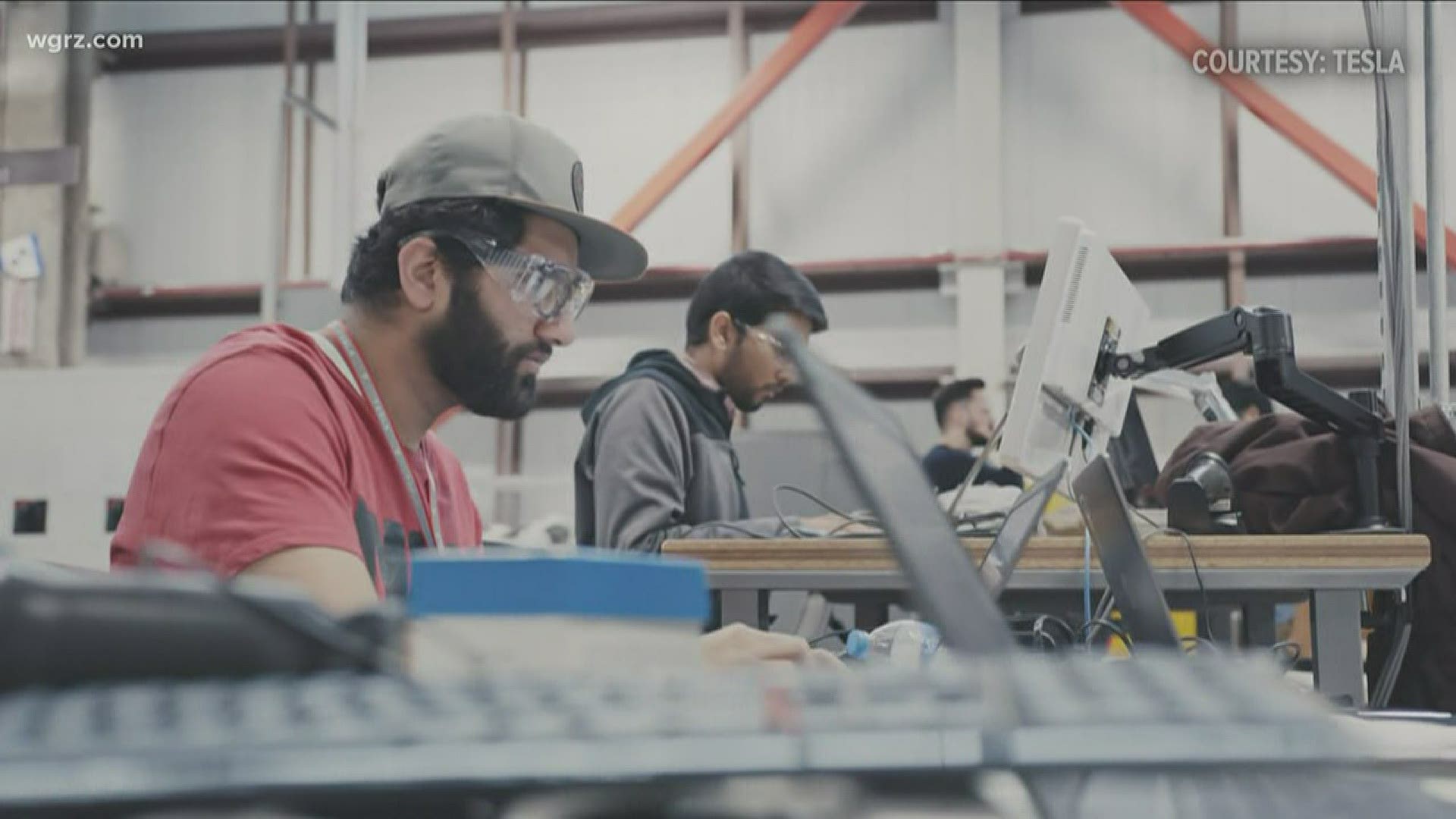BUFFALO, N.Y. — Governor Andrew Cuomo continues to talk about reopening the economy in phases, with the construction and manufacturing sectors perhaps the first to get approval.
The move makes sense, according to Peter Coleman, president of the Buffalo Niagara Manufacturing Alliance.
“We both live in worlds of highly regulated and control environments were safety is critical, so it’s nothing new to us,” Coleman told WGRZ-TV.
According to Coleman, 90 percent of manufacturers have been operating at some capacity during the COVID-19 pandemic. However, those manufacturers, which normally account for a $1 billion monthly impact on the economy of Western New York, have seen a reduction in their capacity of anywhere between 25 and 40 percent.
“We already how to control site traffic, we’ve enhanced hygiene, integrated social distancing, and reduced density in our facilities,” said Coleman. “We will continue to keep our front office personnel, accounting, receiving, project managers, and engineering personnel working from home.”
Eager to Get Going
On Monday Cuomo once again acknowledged the need to get businesses up and running again, but once again cautioned that several factors must weigh into permitting them to reopen.
These factors include the current rate of the spread of the virus, current hospital capacity, and whether those hospitals could be prepared to handle an uptick in numbers should moves made to re-open the economy spark an increase in infections.
“You could un-pause on May 15, but you have to be smart about it,” Cuomo said.
“I don't know why we have to wait three more weeks,” said Coleman. “Especially with the evidence that we are already operating and running safely. Nothing that we would do would jeopardize the safe return of our employees their families or our community".
Coleman also believes we need to get away from classifying jobs as “essential” and “non-essential.”
“The economy is essential right now…everything is essential…everybody’s job is essential,” said Coleman, who believes that production can safely resume with proper protocols in place.
Moreover, he says the longer manufacturing plants here are idled or limited in their operations while others outside of New York resume, the harder the region's long term recovery will be.
“There is a concern here that as the global economy comes back on line, people are going to start looking for alternate sources of supply if their partners in their supply chain can't provide them. That could jeopardize local business, local manufacturers and local manufacturing jobs in our state,” he said.
Making a Plan
Manufacturers who have been operating during the pandemic have been allowed to do so because they either make something considered essential or are part of a supply chain for an essential industry.
In one week Confer Plastics hopes to be able to resume manufacturing at its Niagara County plant on a limited basis, making products deemed essential because they are for the military.
“Even then, we’ll be just a shell what we were because I’m only going to have 36 individuals come back to work at the plant and typically, we’re at 165,” said company president Bob Confer.
Soon after that, he hopes the restrictions will be relaxed so that he can resume making products that are currently deemed non-essential.
“Specifically, pool and spa products which are the main core of our business,” he said.
Confer is confident his plant will be able to comply with the conditions the state might establish for resuming operations and has already formulated a plan for what he anticipates the rules might be.
“We’re 100 percent confident that we will be able to comply under the ‘new normal’, whatever that may be or forever long that may be in existence,” said Confer. “This would range from starting our employee’s work day with a health screening and temperature check, and maybe a second during their shift. We would also enforce social distancing in the plant and spread people out on the manufacturing floor. And we’re going to require the use of face masks at all times."
During a facetime interview, Coleman remarked that manufacturing plants might have a more difficult time finding personal protective equipment than they do now operating on a reduced workforce.
“The biggest issues we’re finding today is access to PPE for manufacturers because most everything has been committed or guided toward the healthcare industry,” he said.
Questions on Re-Opening Process Remain
Meanwhile, there is uncertainty over which state agency will approve applications from manufacturers to ramp up production of non-essential materials, and whether that agency will become as overwhelmed as the New York State Department of Labor was in handling unemployment claims, which resulted in people waiting weeks and months to collect benefits.
Confer said this was a concern earlier when he looked to the Empire State Development Corporation for guidance during the early days of the state mandated shutdown of non-essential businesses.
“I think it's a legitimate concern. They said they were backlogged significantly, and I know the same will hold true with whatever organization is put in charge going forward,” said Confer, who is suggesting that Department of Labor personnel who normally provide on site consultations at plants like his, be pressed into service advising plants on re-opening procedures.
“Those guys and gals know workplaces in and out…just change their job description for six months and have their new duties include instituting and making sure these covid controls are in place.”
"That is a concern,” said Coleman. “If we are going to have regional approaches, then maybe it makes sense to go through the regional economic development councils to give us a path because we’re ready to move forward.”

